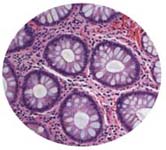New molecular target to improve chemotherapy efficacy identified
 Washington, Nov 2 : A study has identified an enzyme, sphingosine kinase 2, as a possible new therapeutic target, which might help improve the effectiveness of chemotherapy for colon and breast cancer.
Washington, Nov 2 : A study has identified an enzyme, sphingosine kinase 2, as a possible new therapeutic target, which might help improve the effectiveness of chemotherapy for colon and breast cancer.
The study, led by Sarah Spiegel, Ph.D., chair and professor in the VCU Department of Biochemistry and Molecular Biology and co-leader of the cancer centre’s cancer cell biology program, examined human colon and breast cancer cells and established the role of phingosine kinase 2 (SphK2).
SphK2 is an enzyme that forms the potent lipid mediator sphingosine-1-phosphate in the death of cancer cells mediated by the chemotherapeutic drug, doxorubicin.
Doxorubicin is able to kill cancer cells by working with p53, one of the most protective anti-cancer proteins in the human body.
However, doxorubicin also relies on p53- independent mechanisms to induce death in colon and breast cancer cells.
"Understanding how doxorubicin kills in a p53-independent manner is a major goal of cancer researchers because most cancer cells have mutated p53," Spiegel said.
Spiegel said that the study established SphK2 important for p53-independent induction of expression of p21, a cyclin-dependent kinase inhibitor.
The p21 regulates the cell cycle, and apoptosis or programmed cell suicide, mediated by doxorubicin. Human colon and breast cancer cells were killed more efficiently by doxorubicin when SphK2 was removed from the cells.
"Therefore, the findings suggest that SphK2 influences the balance between cytostasis, and apoptosis of human cancer cells," Spiegel said.
Cytostasis refers to the stoppage of cellular growth and multiplication.
Spiegel said that cell death was induced by doxorubicin and decreased p21.
The study is published in the journal Cancer Research. (ANI)